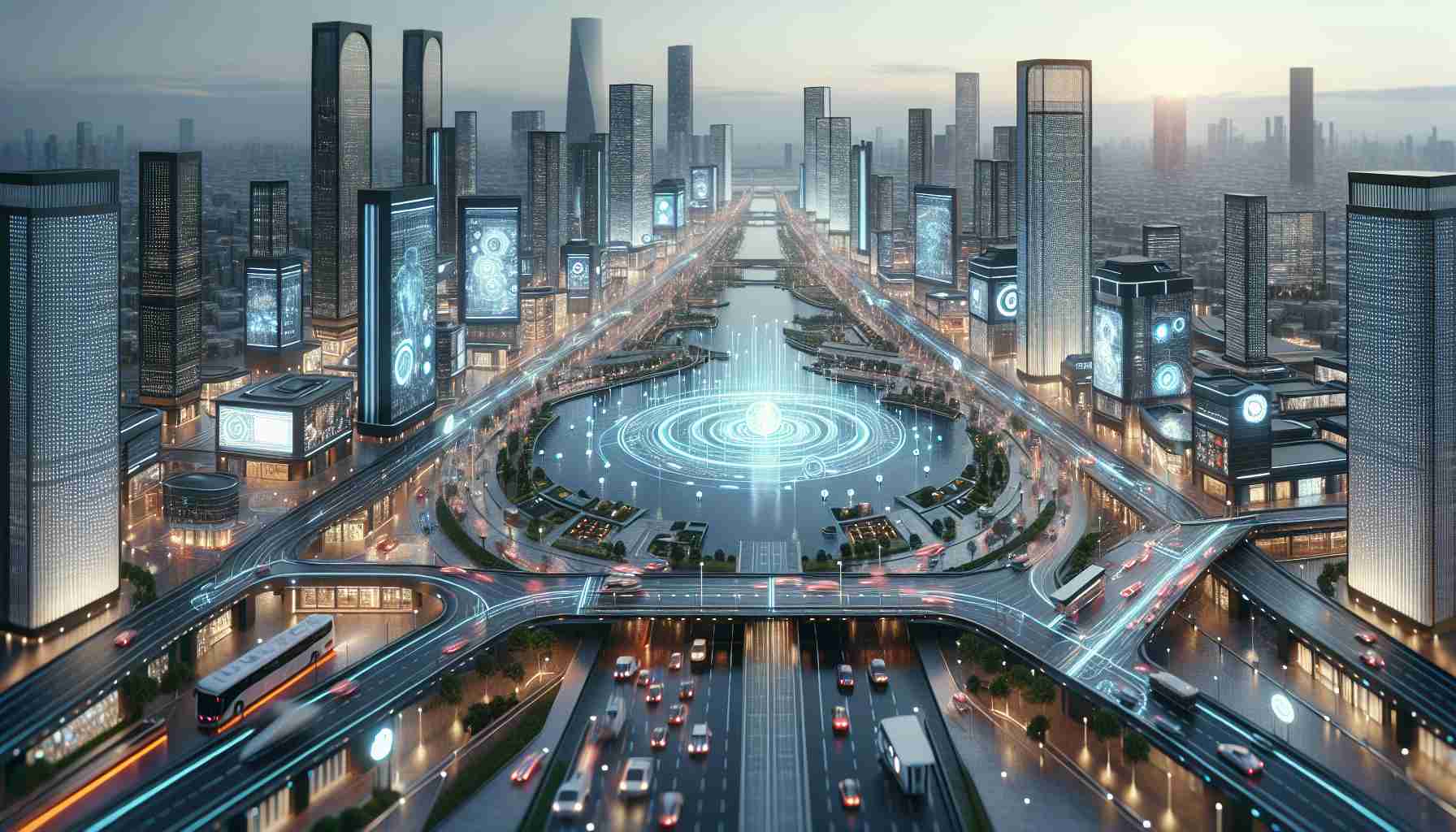AI Transforming Urban Living: A Market Overview
By utilizing cutting-edge AI technologies, the landscape of smart cities is on the brink of a transformative evolution. According to a recent study by InsightAce Analytic, the global market for AI in smart cities is valued at $36.9 billion in 2023, and is projected to soar to $138.8 billion by 2031, with an impressive CAGR of 18.1% from 2024 to 2031.
Empowering Urban Innovations
AI integration in smart cities paves the way for intelligent transportation, enhanced energy management, and bolstered public safety across urban areas. The surge in investment from public and private sectors accelerates the adoption of AI, vastly improving the quality of life for city inhabitants. By enabling smart traffic management and optimizing resource usage, AI addresses urban challenges and uplifts living standards.
Challenges and Regional Prospects
Despite the promising potential, high implementation costs, data security concerns, and regulatory uncertainties hinder full-scale AI adoption in city infrastructure. North America leads in AI-driven urban solutions due to substantial government investments and a growing need to resolve traffic and resource management issues.
Meanwhile, Europe maintains a strong market presence with dedicated investments in smart infrastructure and sustainable urban growth.
Recent Developments Igniting Progress
Key developments include Oracle’s expansion in Saudi Arabia to bolster cloud capacity and IBM’s collaboration with Gujarat’s Department of Science and Technology to foster AI innovation, underscoring a global commitment to advancing AI in urban settings.
As AI continues to redefine city dynamics, the drive towards smarter and more resilient cities gains unstoppable momentum, heralding a new era of urban living.
How AI-Driven Smart Cities Will Revolutionize Our Future
An Unexpected AI Revolution: Beyond Traditional Urban Planning
With the rapid integration of AI into urban planning, cities as we know them might soon become relics of the past. Imagine a world where your average rush hour is obliterated by self-regulating traffic systems and where energy usage is so efficient that power outages become virtually non-existent. As smart cities flourish, they unleash potential that could redefine humanity’s interaction with urban spaces, influencing new technologies in surprising ways.
Unlocking Secrets: AI and Urban Development
AI’s role in the evolution of smart cities isn’t limited to improving traffic and energy. It fosters innovations that are crucial for further urban development. For instance, AI-powered predictive analytics streamline urban planning by analyzing population growth and resource needs, ensuring cities expand with sustainability at their core. This intelligent foresight could dramatically alter how future cities are built and managed.
One of AI’s most thrilling potential developments is its ability to create new modes of connectivity. Smart cities are poised to redefine how communities interact through AI-managed digital platforms, enhancing civic participation and fostering social integration across diverse urban populations.
Advantages and Potential Pitfalls: A Double-Edged Sword?
While AI’s potential benefits are manifold, it’s important to take a critical stance on the technology’s ramifications. Advantages include:
1. Efficiency and Sustainability: By meticulously managing resources and reducing wastage, smart cities contribute to a greener earth.
2. Enhanced Safety: AI-driven surveillance and rapid response systems can significantly improve urban safety.
3. Economic Growth: Smart city technologies open avenues for new businesses and industries, boosting economic development.
However, the disadvantages are rooted in complex challenges:
1. Privacy Concerns: AI’s data collection raises alarms over privacy infringement and surveillance overreach, sparking debates on how to strike a balance.
2. Equity Issues: There is a risk of widening the digital divide, where affluent regions gain technological advancements, leaving others behind.
3. Dependency on Technology: Over-reliance on AI systems might create vulnerabilities, especially if these systems fail or are tampered with.
Controversies: Does AI Respect City Autonomy?
A key controversy surrounding AI in urban areas is the potential erosion of local government autonomy. Is it possible that cities will relinquish too much control to AI systems? While AI offers unprecedented data-driven insights, the question remains whether the reliance on AI solutions could hinder human decision-making, potentially marginalizing local leadership.
Moreover, AI in urban development sparks debate over ethical considerations and transparency in decision-making processes. As we entrust AI with more responsibilities, maintaining human oversight is vital to ensure decisions reflect community values and priorities.
Future Prospects: What Lies Ahead?
What do smart cities mean for the future of urbanization? The answer is multi-faceted, with profound implications for technology and humanity. Smart cities could become epicenters of innovation, pushing technological boundaries while promoting inclusive growth. However, this transformation demands collaboration among policymakers, technologists, and citizens to navigate challenges and seize opportunities effectively.
For those eager to explore more, consider visiting the following resources for insights into AI and smart cities:
As we march toward a world where smart cities are the norm, it is crucial to question, critique, and contribute to shaping a future that balances technological advancement with human well-being.
